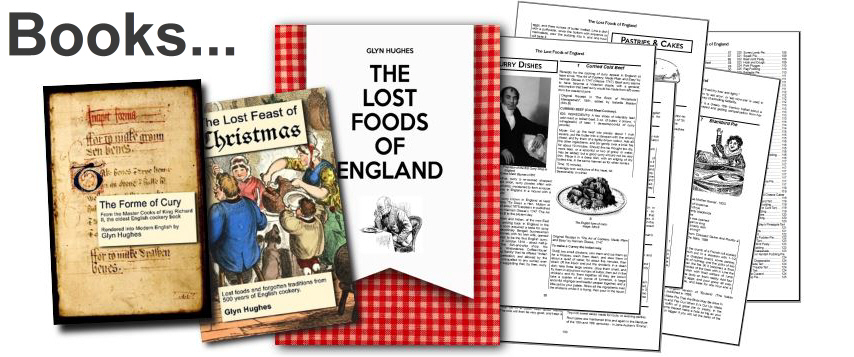

|
 A hot drink of ale, or ocasionally wine, with milk and spices. The name has more recently been transferred to Caudles and Syllabubs English Posset Pot, c1675 Image: Gardiner Museum, Toronto, Canada Recorded from about 1425 as 'possyt' by Wright and Wülcker's 'Anglo-Saxon and Old English Vocabulary' of 1888.  Original Receipt in 'The Accomplisht Cook' by Robert May, 1660 (Robert May 1660); Original Receipt in 'The Accomplisht Cook' by Robert May, 1660 (Robert May 1660);To make a Posset. Take the yolks of twenty eggs, then have a pottle of good thick sweet cream, boil it with good store of whole cinamon, and stir it continually on a good fire, then strain the eggs with a little raw cream; when the cream is well boiled and tasteth of the spice, take it off the fire, put in the eggs, and stir them well in the cream, being pretty thick, have some sack in a posset pot or deep silver bason, half a pound of double refined sugar, and some fine grated nutmeg, warm it in the bason and pour in the cream and eggs, the cinamon being taken out, pour it as high as you can hold the skillet, let it spatter in the bason to make it froth, it will make a most excellent posset, then have loaf-sugar fine beaten, and strow on it good store. To the curd you may add some fine grated manchet, some claret or white-wine, or ale only. To make a Posset otherways. Take two quarts of new cream, a quarter of an ounce of whole cinamon, and two nutmegs quartered, boil it till it taste well of the spice, and keep it always stirring, or it will burn to, then take the yolks of fourteen or fifteen eggs beaten well together with a little cold cream, put them to the cream on the fire, and stir it till it begin to boil, then take it off and sweeten it with sugar, and stir it on till it be pretty cool; then take a pint and a quarter of sack, sweeten that also and set it on the fire till it be ready to boil, then put it in a fine clean scowred bason, or posset pot, and pour the cream into it, elevating your hand to make it froth, which is the grace of your posset; if you put it through a tunnel or cullender, it is held the more exquisite way.  Original Receipt in 'English Housewifry' by Elizabeth Moxon, 1764 (Moxon 1764) Original Receipt in 'English Housewifry' by Elizabeth Moxon, 1764 (Moxon 1764)150. To make a POSSET with Almonds. Blanch and beat three quarters of a pound of almonds, so fine that they will spread betwixt your fingers like butter, put in water as you beat them to keep them for oiling; take a pint of sack, cherry or gooseberry wine, and sweeten it to your taste with double refin'd sugar, make it boiling hot; take the almonds, put to them a little water, and boil the wine and almonds together; take the yolks of four eggs, and beat them very well, put to them three or four spoonfuls of wine, then put it into your pan by degrees, stirring it all the while; when it begins to thicken take it off, and stir it a little, put it into a china dish, and serve it up.  Original Receipt from 'Pot-luck; or, The British home cookery book' by May Byron (Byron 1914) Original Receipt from 'Pot-luck; or, The British home cookery book' by May Byron (Byron 1914)620. LEMON POSSET (Yorkshire, 1769) Take one pint of good thick cream, grate into it the outer rind of two lemons, and squeeze the juice into half a gill of white wine, and sweeten it to your taste. Take the whites of two eggs and beat them to a froth, then beat all together in a bowl, then put it into the glasses for use. See also: Earl of Arundel's Posset King William's Posset Master Rudstone's Posset Powsowdie or Ponsondie Sack Posset Treacle Posset For other species of spicebeer, see: Ale Gruel Aleberry Bragget Caudel or Caudle Drink-Meat Egg Flip Egg Hot Koorow Lamb's Wool, or Lamasool Mulled Ale Posset Treacle Posset  |
|
MORE FROM Foods of England... Cookbooks ● Diary ● Index ● Magic Menu ● Random ● Really English? ● Timeline ● Donate ● English Service ● Food Map of England ● Lost Foods ● Accompaniments ● Biscuits ● Breads ● Cakes and Scones ● Cheeses ● Classic Meals ● Curry Dishes ● Dairy ● Drinks ● Egg Dishes ● Fish ● Fruit ● Fruits & Vegetables ● Game & Offal ● Meat & Meat Dishes ● Pastries and Pies ● Pot Meals ● Poultry ● Preserves & Jams ● Puddings & Sweets ● Sauces and Spicery ● Sausages ● Scones ● Soups ● Sweets and Toffee ● About ... ● Bookshop ● Email: editor@foodsofengland.co.uk COPYRIGHT and ALL RIGHTS RESERVED: © Glyn Hughes 2022 BUILT WITH WHIMBERRY |